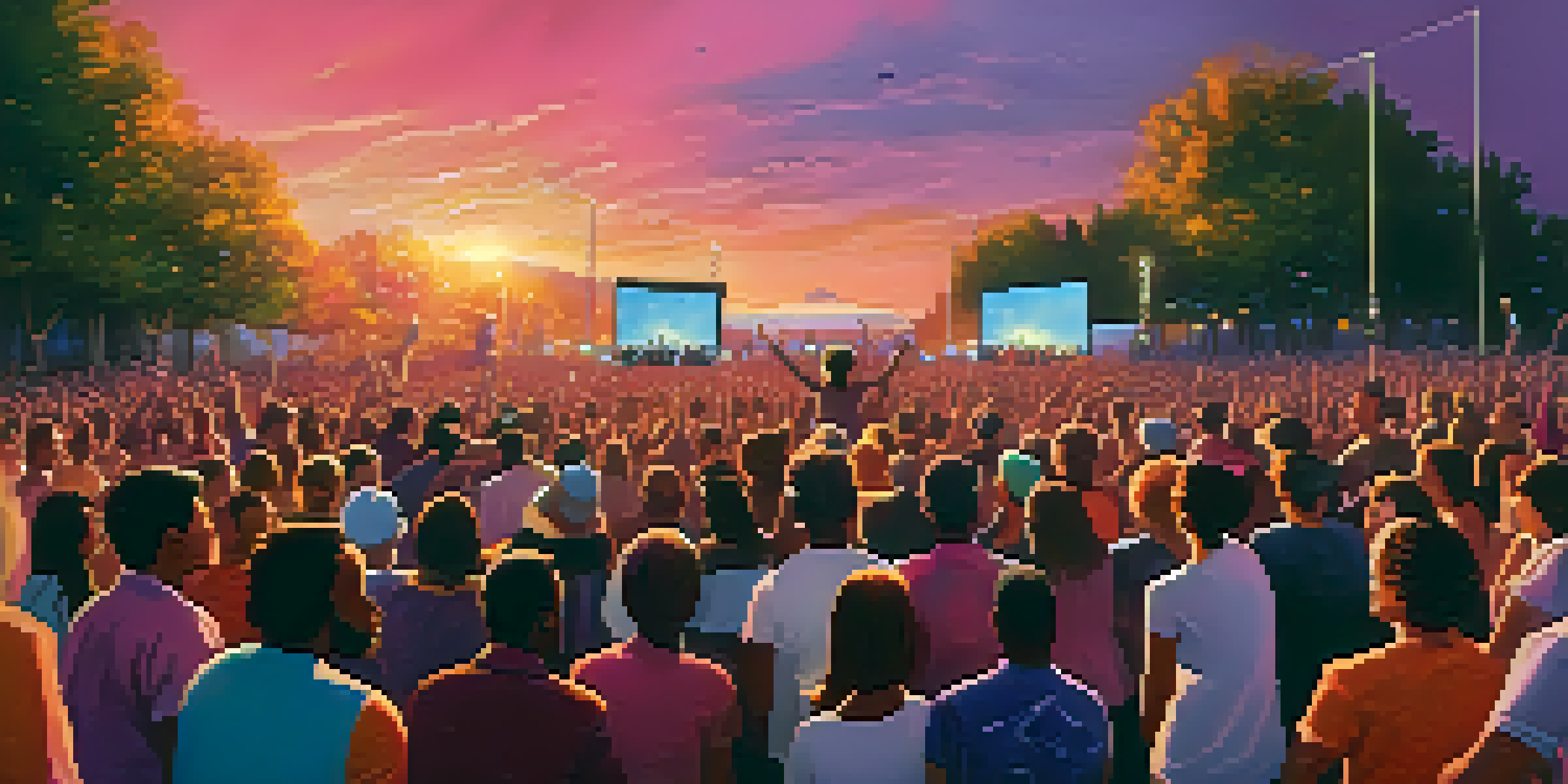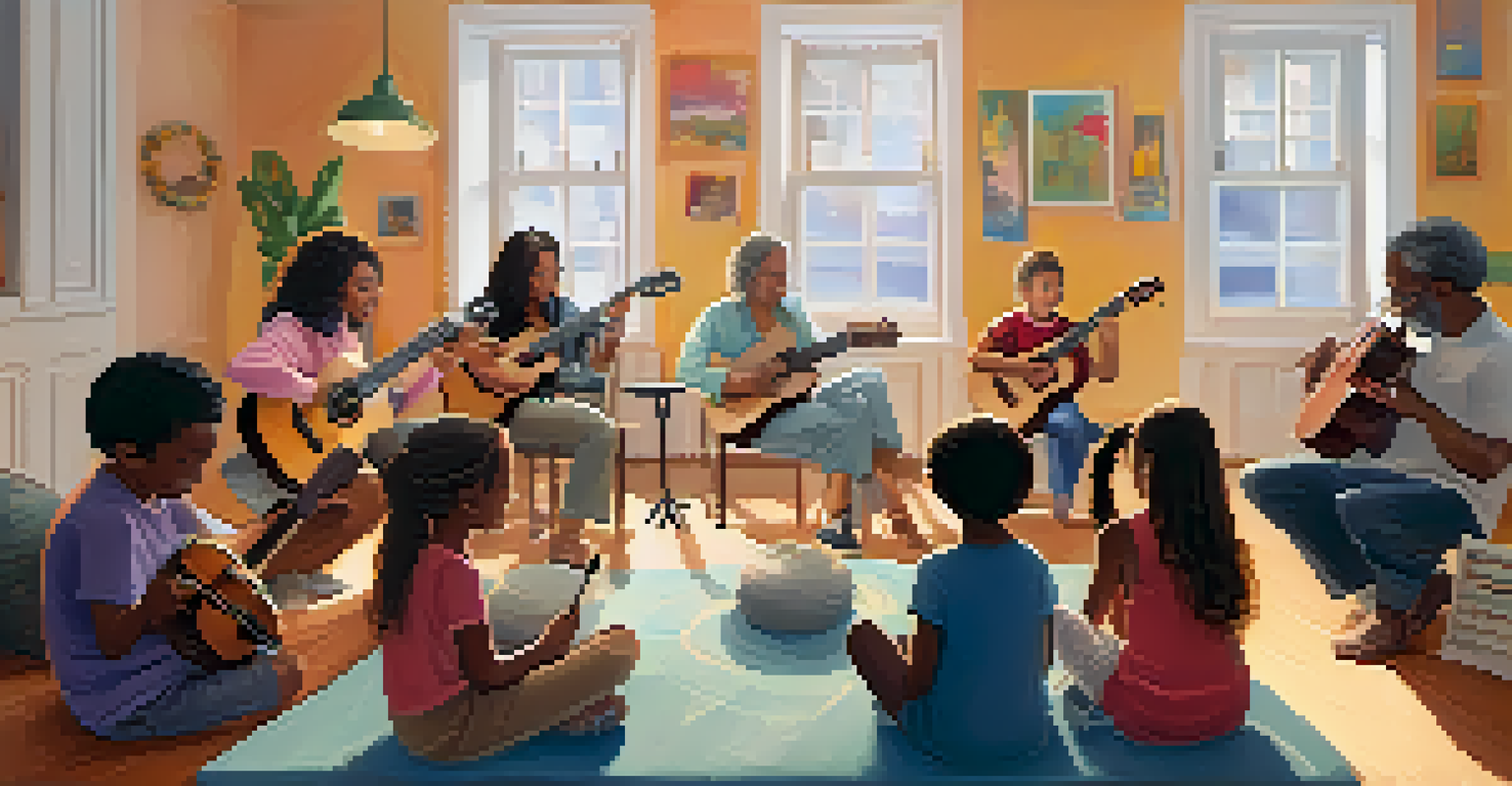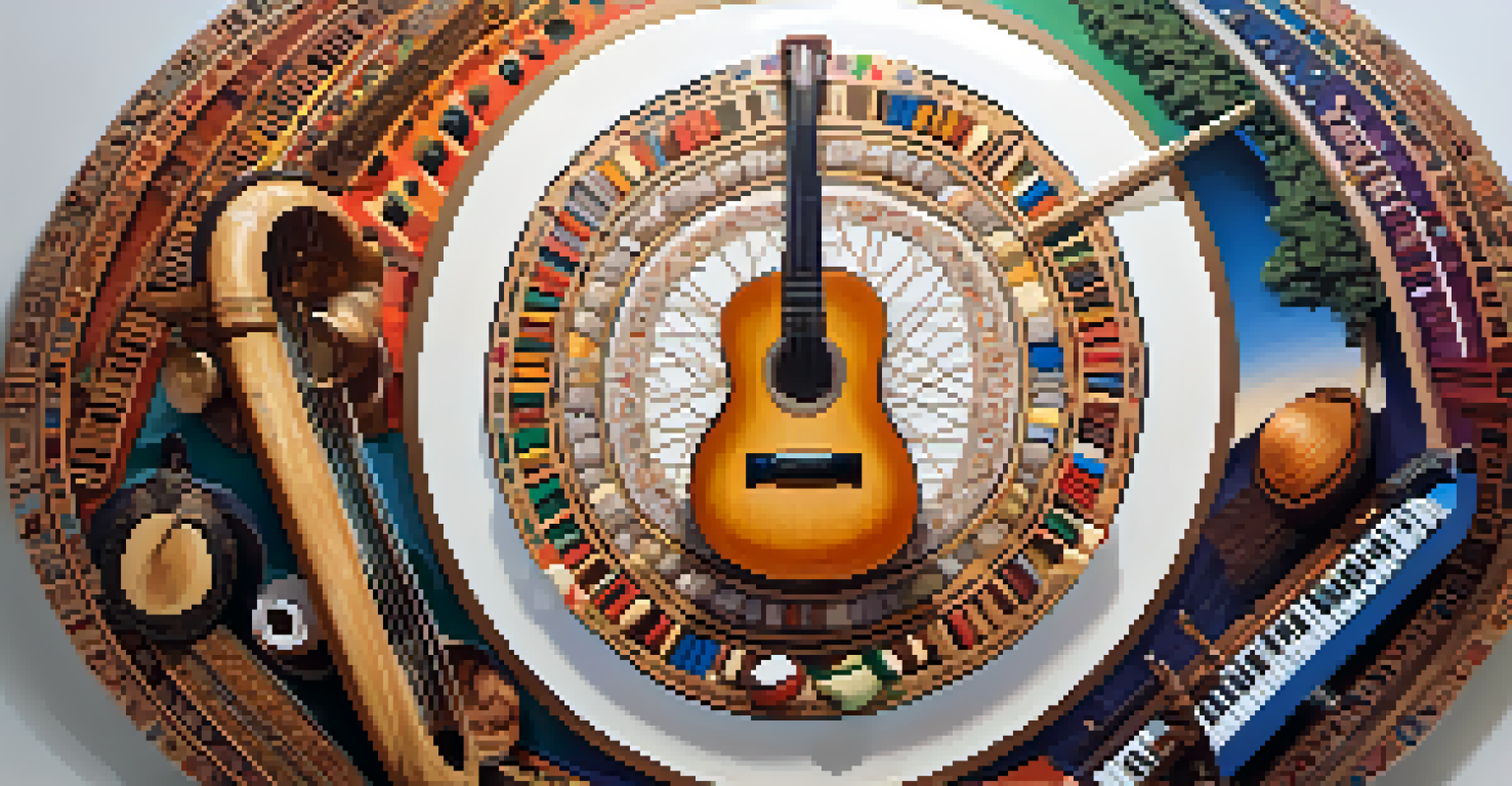Music's Role in Fostering Empathy and Social Connection

Music as a Universal Language That Connects Souls
Music is often referred to as a universal language, transcending barriers of culture, age, and background. It has a unique ability to evoke emotions and create a sense of shared experience among listeners. For instance, a powerful symphony can stir feelings of joy or sadness, allowing individuals to connect on an emotional level, even if they don’t speak the same language.
Music can change the world because it can change people.
This universality means that music can bring together people from diverse walks of life, fostering a sense of belonging. Think about concerts: when thousands gather to sing along to a beloved song, they’re not just enjoying the music; they’re creating a moment of collective joy. This shared experience helps build connections that can turn strangers into friends.
Ultimately, the emotional power of music encourages empathy. When we hear a song that tells a story of struggle or love, we’re drawn into the artist’s world, gaining insight into their experiences and feelings. This, in turn, can inspire us to better understand and empathize with those around us.
The Science Behind Music and Emotional Resonance
Research shows that music can trigger emotional responses in the brain, similar to how we react to real-life experiences. When we listen to music, our brain releases dopamine, the 'feel-good' chemical, which can enhance feelings of happiness and connection. This neurological response explains why a song can instantly lift our spirits or make us feel nostalgic.

Moreover, studies have indicated that music can induce feelings of empathy. For example, when people listen to music that reflects their own emotional state, they often feel more understood and less alone. This can be particularly powerful during challenging times, as it reinforces the idea that others share similar feelings and experiences.
Music Fosters Universal Connections
Music transcends cultural and linguistic barriers, creating shared emotional experiences that unite people.
In essence, the science of music reveals its profound ability to evoke empathy and promote social connection. By tapping into our emotions, music allows us to relate to others in a deeply human way, creating bonds that might not have formed otherwise.
How Music Therapy Enhances Empathy in Communities
Music therapy is an increasingly recognized practice that utilizes music to improve emotional and social well-being. In therapy sessions, individuals are encouraged to express themselves through music, which can lead to heightened self-awareness and empathy for others. This process fosters a deeper understanding of one’s own emotions and those of others.
Where words fail, music speaks.
For instance, community music therapy programs often bring diverse groups together, promoting collaboration and connection. Participants might create music together, allowing them to share their stories and perspectives in a safe environment. This shared creative process can break down barriers, encouraging empathy and social bonding.
Through music therapy, individuals learn that their feelings are valid and that others experience similar emotions. This realization can lead to greater compassion and understanding within communities, fostering stronger social ties and a sense of belonging.
Songs That Unite: Anthems of Empathy and Advocacy
Throughout history, certain songs have emerged as anthems of empathy and social justice, rallying people around common causes. Tracks like 'Imagine' by John Lennon or 'Fight the Power' by Public Enemy resonate deeply with listeners, encouraging them to reflect on social issues and unite for change. These songs serve as reminders of our shared humanity and the power of collective action.
When people come together to sing such anthems, it creates a powerful sense of solidarity. For instance, during protests, music often plays a vital role in energizing crowds and fostering a sense of unity among participants. The emotional weight of these songs can inspire individuals to empathize with the struggles of others, motivating them to take action.
Empathy Through Musical Expression
Engaging with music, whether through therapy or community programs, enhances empathy and understanding among individuals.
Ultimately, these musical movements highlight the profound impact of music on social connection. By harnessing the power of song, communities can come together to advocate for change, reinforcing empathy and solidarity among individuals.
Cultural Diversity in Music and Its Impact on Empathy
Music is a rich tapestry of cultural expression, with each genre and style offering unique insights into different societies. Exploring diverse musical traditions can enhance our understanding of cultures beyond our own, promoting empathy and appreciation for different perspectives. For example, listening to traditional African drumming or Indian classical music can open our eyes to the values and experiences of those cultures.
When we engage with music from around the world, we often find common themes of love, struggle, and resilience. This shared emotional landscape helps us connect with others, bridging cultural gaps and fostering a sense of global community. The more we expose ourselves to diverse musical forms, the more we develop a nuanced understanding of the human experience.
In this way, cultural diversity in music serves as a powerful tool for empathy. By celebrating and embracing different musical expressions, we can cultivate a greater appreciation for the rich tapestry of human emotions and experiences that unite us all.
Music's Role in Building Stronger Relationships
On a more personal level, music can play a significant role in strengthening relationships. Couples who share a love for certain songs or genres often find that music enhances their emotional connection. Whether it’s a shared playlist for road trips or a special song that marks a milestone, these musical memories can deepen bonds between individuals.
Moreover, music can serve as a catalyst for communication. Listening to a song together can spark conversations about feelings, experiences, and memories, allowing partners to connect on a deeper level. For instance, discussing the lyrics of a poignant song can help individuals express emotions they might otherwise struggle to articulate.
Cultural Diversity Enriches Empathy
Exploring diverse musical traditions broadens our perspectives, fostering global empathy and appreciation for different cultures.
Thus, music becomes a bridge for emotional intimacy, helping people navigate their feelings and experiences. By sharing and creating music together, individuals can cultivate a sense of empathy and understanding that strengthens their relationships.
Conclusion: Music as a Pathway to Empathy and Connection
In conclusion, music holds a remarkable power to foster empathy and social connection. Whether through shared experiences at concerts, the emotional resonance of songs, or the therapeutic benefits of music therapy, it bridges gaps between individuals and communities. This connection nurtures our understanding of one another, allowing us to relate to the feelings and experiences of others.
As we explore the diverse world of music, we find that it reflects the rich tapestry of human emotions and stories. By embracing this diversity, we not only enhance our own empathy but also contribute to a more compassionate and connected society.

Ultimately, music is not just an art form; it’s a vital tool for building relationships and fostering understanding. By recognizing and celebrating the role of music in our lives, we can continue to nurture empathy and connection in an ever-evolving world.